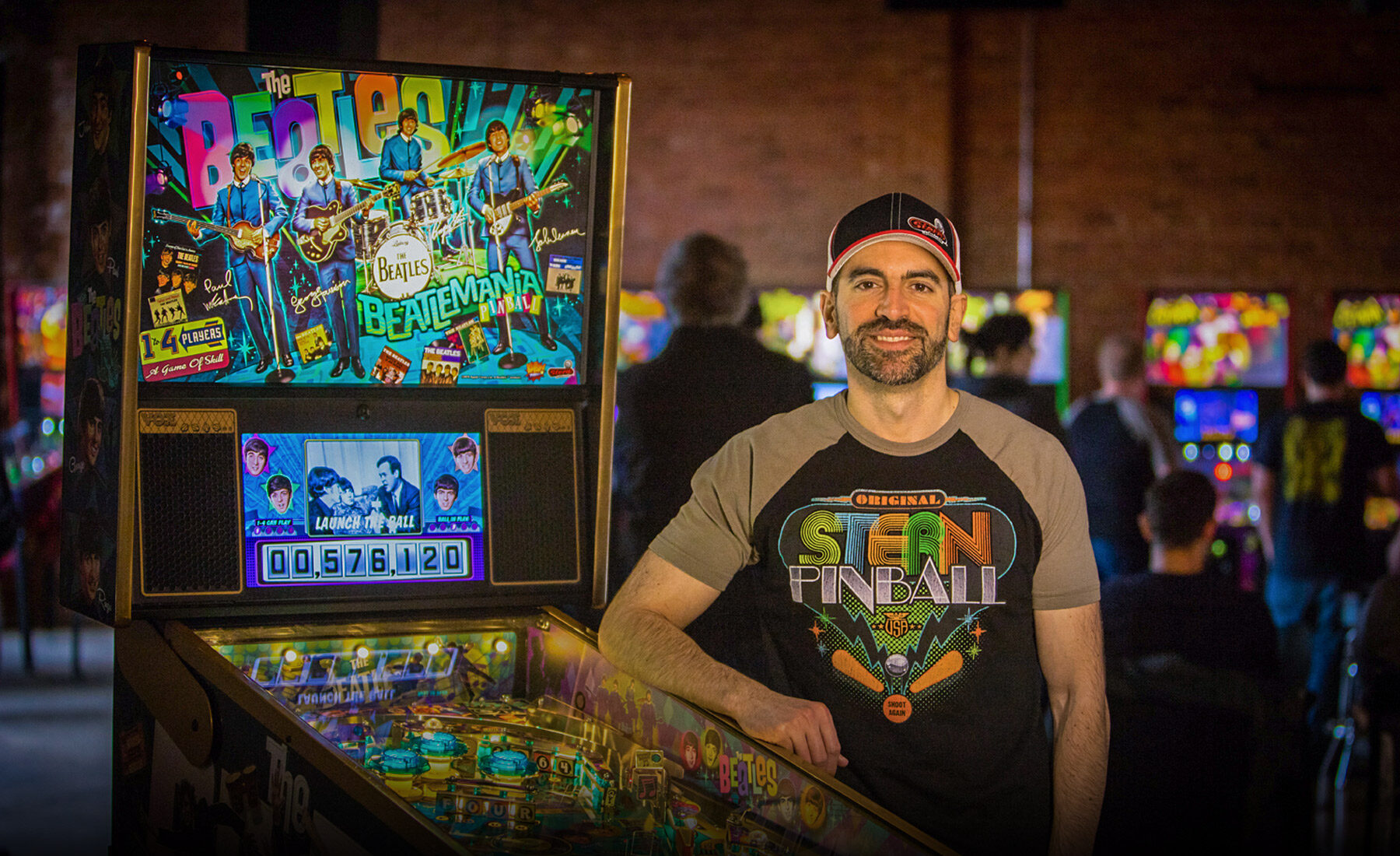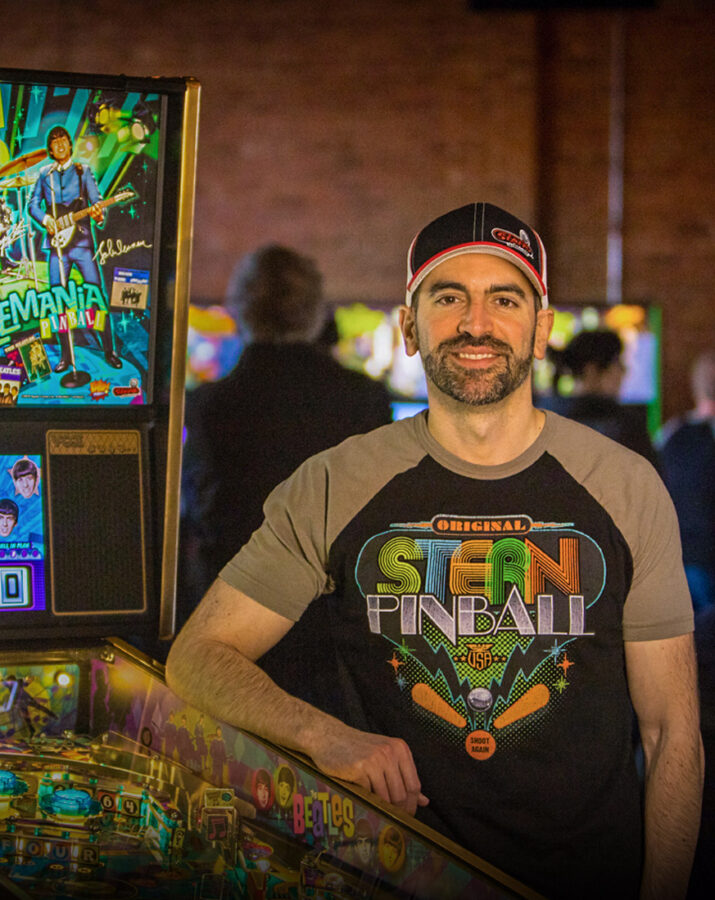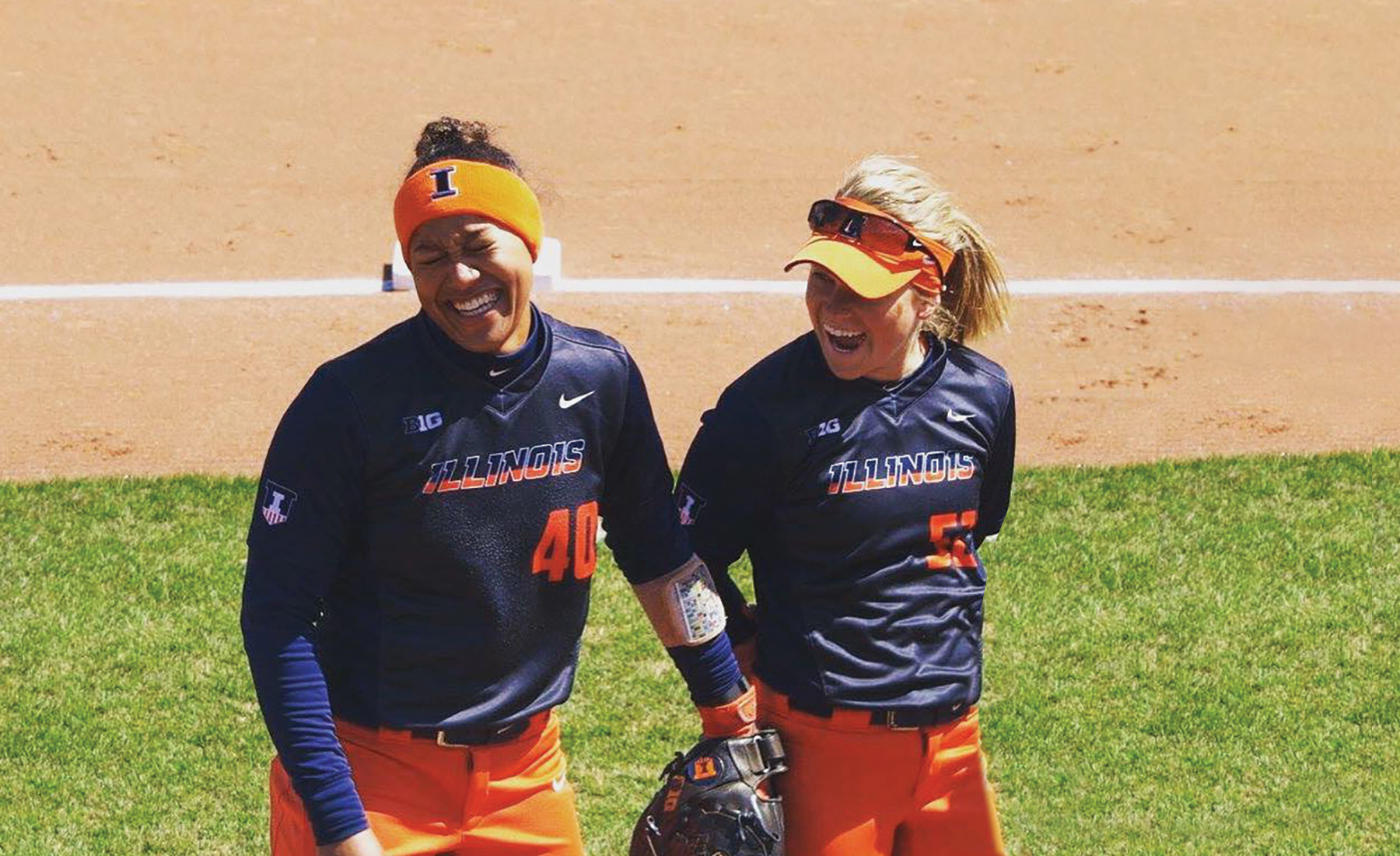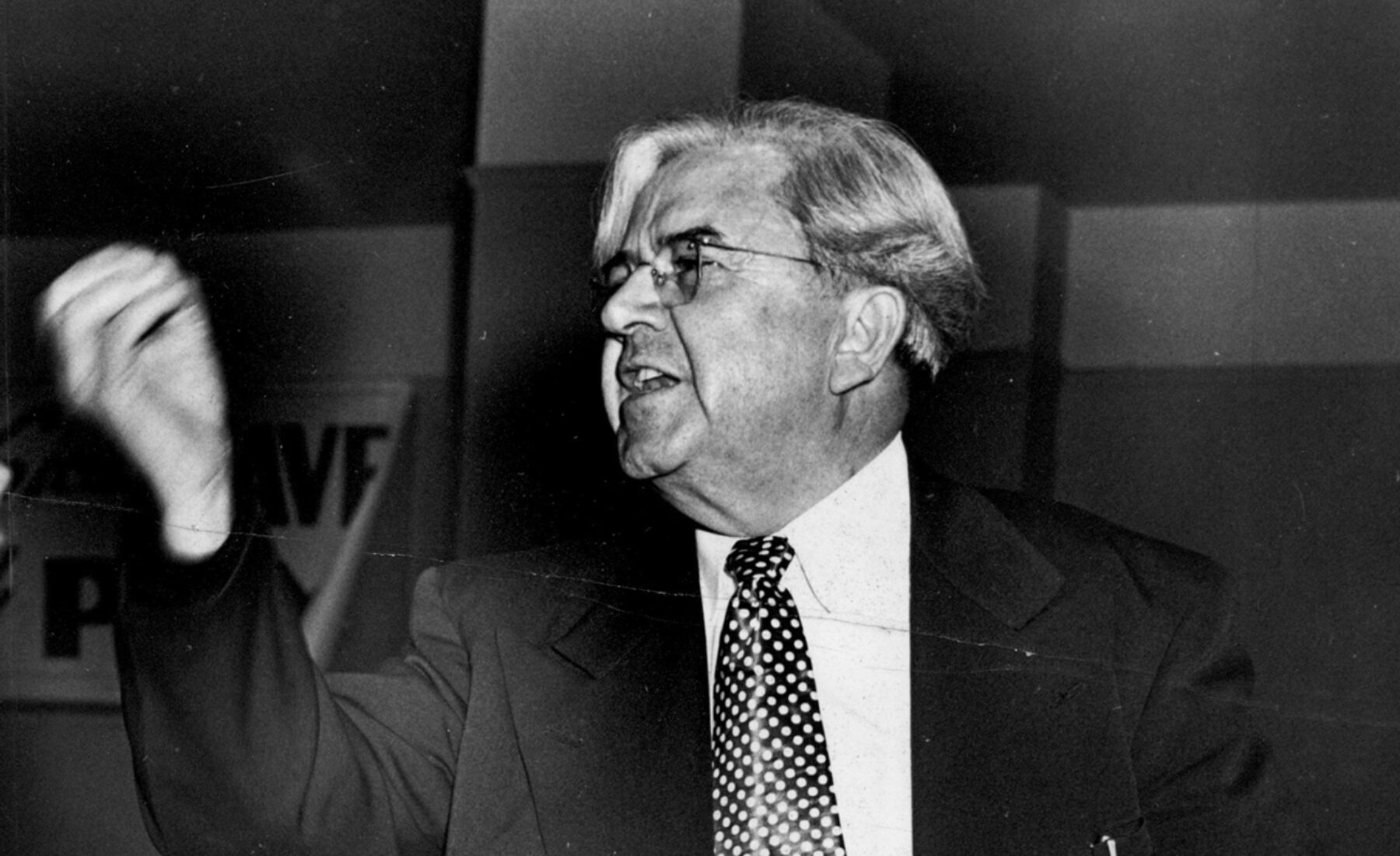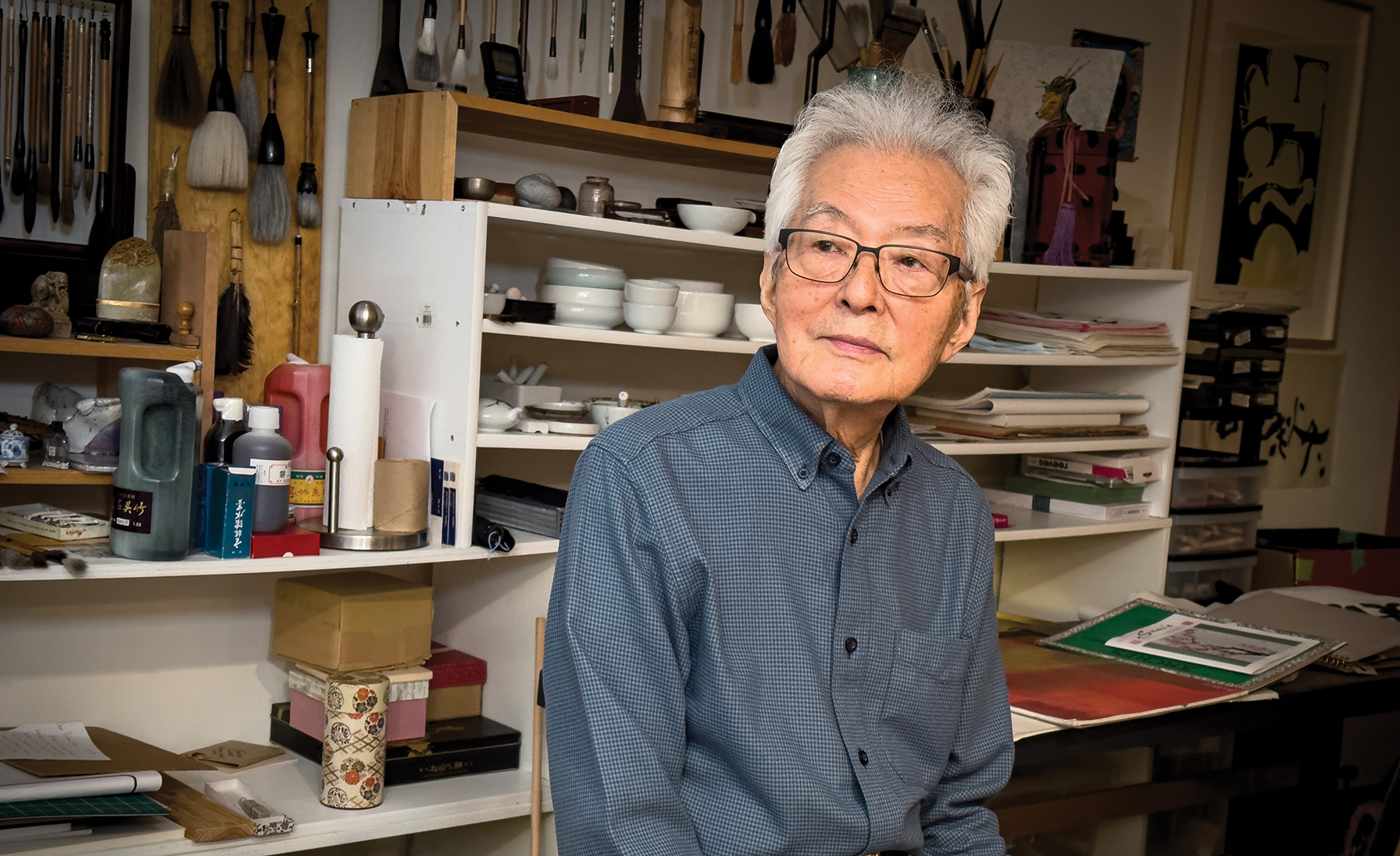“I don’t even have an earliest memory of playing pinball because it’s always been a part of my life.”
Zach Sharpe (GIES ’05) comes from what the Chicago Reader calls the First Family of Pinball. When he was growing up in suburban Chicago, there were no fewer and often more than ten pinball machines in his house — in his bedroom, in the basement, in the living room. He was surrounded by the sounds of balls ricocheting against bumpers and the glow of the back glass.
At one point, his father, Roger, was among the best pinball players in the country and is credited with saving the game in the 1970s. Today, Zach and his brother, Josh (GIES ’01), continually top the rankings, and all three men hold top positions in the International Flipper Pinball Association, the industry’s governing body for competitive pinball. In 2018, Zach was ranked No. 1 in the world.
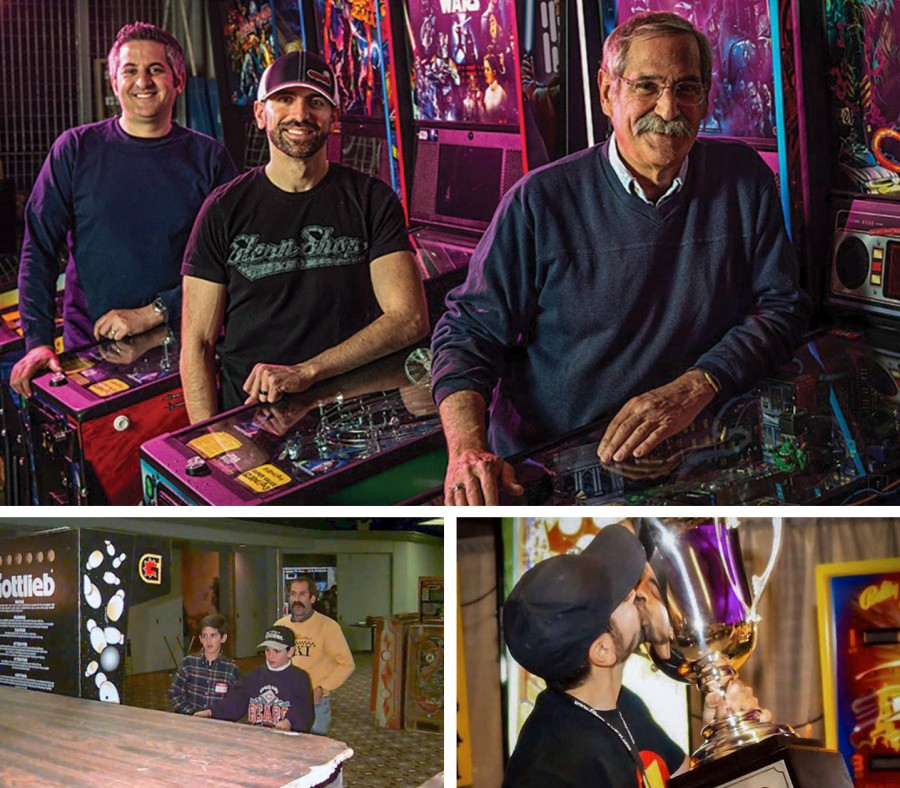
No Sharpe would find himself without a respectable personal collection. Now living in Chicago’s North Park neighborhood with his wife and young son, Zach has seven machines in his basement. His father and brother, who both live in Arlington Heights, have twenty-five and twenty-nine machines respectively.
But Zach doesn’t only lead in pinball rankings — he also works for the global market leader in manufacturing pinball machines, Stern Pinball in Elk Grove Village.
✦ ✦ ✦
Chicago and pinball have a long history. As Zach explains, Chicago is to pinball as Detroit is to cars. Nearly all of the major pinball manufacturers have been located in and around the city — and even as interest in the game has ebbed and flowed, Chicago has always remained at the epicenter.
Pinball actually derives from an eighteenth-century French game called Bagatelle, but the game as we would recognize it today dates back to the early 1930s. The most successful manufacturers of those games — Gottlieb, Williams, Stern — were all located in Chicago.
In the early days, however, there was a negative stigma attached to pinball. The machines were manufactured in a city at the time synonymous with Al Capone and organized crime. Pinball was also classified as gambling, because early games would pay out small winnings.
“Pinball had this stigma of cigarettes, bad boys, drinking, and gambling,” Zach said.
In fact, pinball was illegal from the early 1940s until 1976, when Zach’s own father, Roger, is credited with saving the game.
Roger was, like his sons today, one of the top pinball players in the country in 1976. In May of that year, he stood in front of two pinball machines set up in a Manhattan courtroom (having two machines was insurance against somehow fixing the outcome). Gambling often relies on luck, but Roger was here to prove that pinball was a game of skill. In front of New York City Council members (and ultimately the world), Roger called his shot, telling the city council members exactly where he planned to shoot the ball. If he made the shot, he would prove there was skill to the game.
Of course, he made the shot, and cities across the country subsequently overturned their bans on pinball. Roger went on to work in marketing for one of the main pinball manufacturers, Williams Manufacturing. As young boys, Zach and his brother would go with their father to the annual pinball expo in Chicago. “We would play the games around the hall and listen to seminars,” Zach remembers. “And we would get embarrassed when people would ask for his autograph. At the time, we didn’t really understand why.”
✦ ✦ ✦
On any given production day, the team at Stern can produce up to seventy-five pinball machines. Their games are shipped to over thirty countries. And, because of demand, there are plans to increase capacity even more.
Zach is a natural fit for Stern. He brings not only his marketing agency background to the job but his perspective and skill as a player. As director of marketing, his main role is to plan how to launch the games to the world, but he finds himself involved in many aspects of the games’ development in the twelve to eighteen months it takes to go from concept to putting the machine in a shipping box. He is consulted on rules, plays, design, and more.
Yet, he is humble when asked about his role at Stern. Yes, he brings a high “pinball IQ” to the company, but he’s not the only one. Stern also employs Keith Elwin, a decorated player who has been lead designer and rules creator on two of the company’s most recent and successful games, Iron Maiden and Jurassic Park. “If you ask anyone who is the Michael Jordan of pinball, everyone would say Keith Elwin,” Zach says.
And yes, they have gone head-to-head in the factory. “In fact, he owes me a rubber match. I’ve won once against him and he’s won once against me,” Zach laughs.
✦ ✦ ✦
When Zach and his brother were growing up, pinball had taken somewhat of a pause. Whereas now there are now nearly 5,000 tournaments per year, in the late 1990s and early 2000s, Zach remembers only a handful.
It was at the Chicago Pinball Expo that they first saw a kid their age playing in a tournament, and it piqued both of their interests. Their dad, however, was not eager to get his boys involved. In fact, Zach and his brother had to beg their dad to let them compete.
“He didn’t want a sibling rivalry forming,” Zach explains. “He didn’t want something he loved — pinball — to be a point of tension between us. It took several years of Josh and I begging to compete until he finally caved in. I was twelve, Josh was fourteen, and we just started dominating the junior circuit. If anything, it brought us closer together.”
Josh founded the Illini Pinball League in Champaign, originally a registered student organization, in the late 1990s. At that time, the group played on a couple dozen machines located in the bowling alley of the Illini Union. Zach took over running the group after his brother graduated, and when he left, he turned over the reins to their friend Brian Woodard, who is director of undergraduate programs for aerospace engineering in the Department of Aerospace Engineering at Illinois. Members now play at a few public locations around Champaign-Urbana, but largely in people’s homes with their private collections.
Fast forward twenty-five years, and both brothers continually top the ratings. They’ve also contributed heavily to the resurgence of the sport of competitive pinball. In 2005, Roger and his colleague, Steve Epstein, resurrected the International Flipper Pinball Association (IFPA) and brought a formal system of ranking to the organization. In those first years, only about one hundred tournaments were held and about five hundred players were ranked. Now, there are over five thousand tournaments per year and seventy-five thousand players ranked. “Every year it keeps growing,” Zach says. “Since 2005, there has never been a non-growth year in the sport of competitive pinball.”
According to Zach, everyone enjoys something different about pinball. “My pleasure is playing competitively. The higher the stakes the better,” he says. “For other people, it’s just turning off your mind from the outside world. You get absorbed in this world under glass. You’re transported into whatever theme you’re playing, you are in that universe with the sounds and the interaction with the ball under the playfield glass.”
✦ ✦ ✦
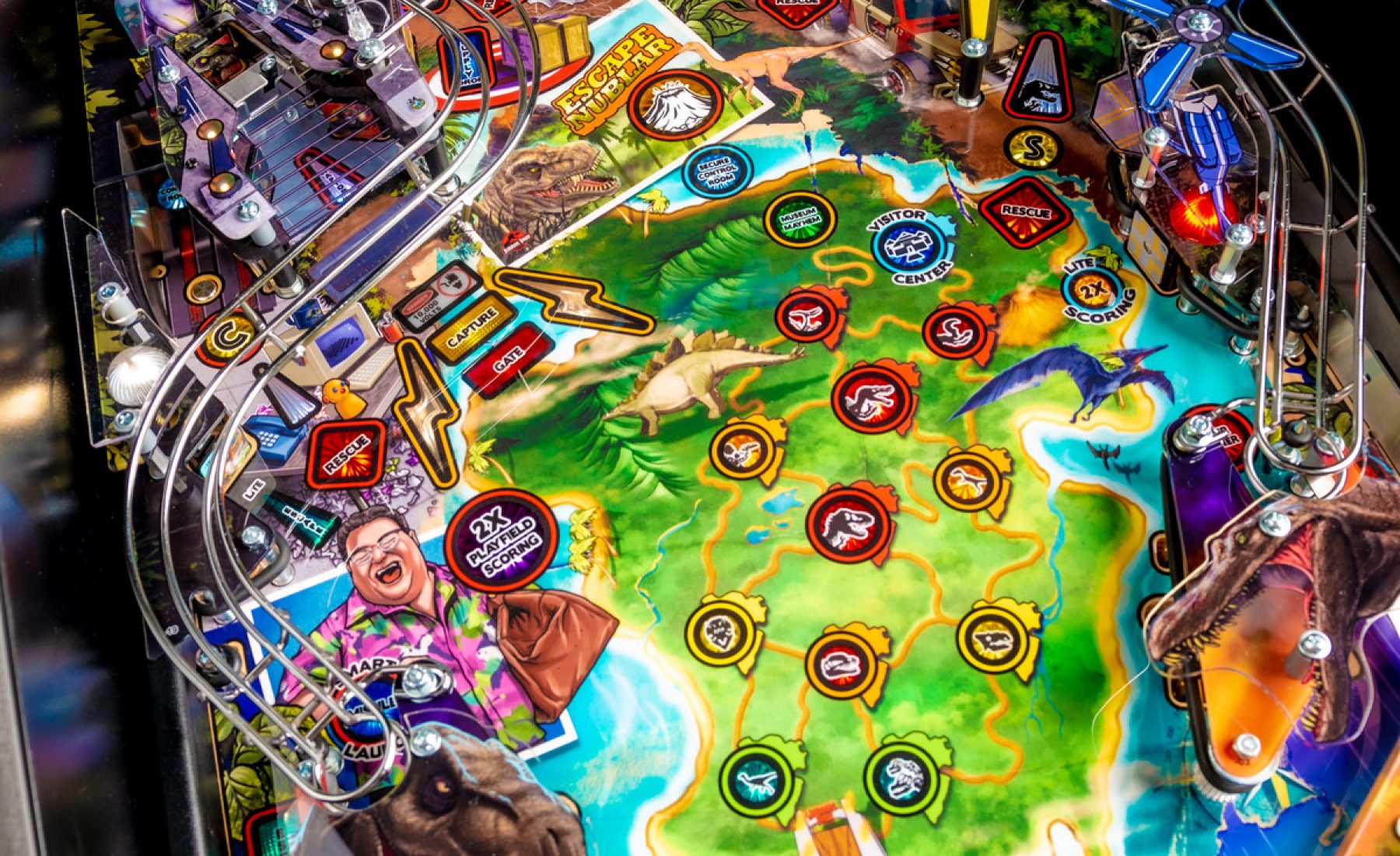
The pinball scene is enjoying a renaissance. An explosion of “barcades” have opened in recent years, filled with the neon lights and melodic digital sounds that evoke a childhood spent with quarters in your pockets. At Headquarters Beercade in River North, walls are lined with pinball machines, and Logan Arcade in Logan Square boasts the largest public collection of pinball and video games in Chicago, including over thirty pinball machines.
Zach is an enthusiastic ambassador for the game. “Pinball is the universal language. At the world championship held this summer in Italy, people came from over twenty countries. Most people didn’t speak English, but we understood each other,” he says.
Tournaments are held all over, and a search of the IFPA website, usually reveals tournaments within miles of any given location. Most are casual, relaxed competitions, and Zach wants people to know that all are welcome: “Get out and play. You’d be surprised at how much fun you can have at an event.”
This story was published .